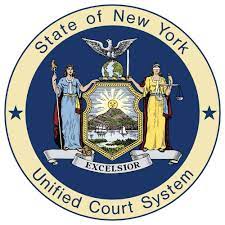Dubai Court Weighs in on U.S.-Iran Sanctions
Subject to certain exceptions, current U.S. sanctions law prohibits U.S. persons from supplying goods, technology, or services to Iran or its government. Consistent with these laws, U.S. insurers and reinsurers often include in their policies a Sanctions Clause, specifying they will not pay out on policies if doing so would violate U.S. sanctions laws. Such…
Continue ReadingConference to Honor Professor Linda Silberman
On April 20-21, this coming Thursday and Friday, the Center for Transnational Litigation, Arbitration, and Commercial Law at NYU School of Law will hold a conference to honor Professor Linda Silberman, who retired in 2022 after 51 years of teaching. The conference is free, but registration is required. The conference program can be viewed here….
Continue ReadingPaper Tiger, Hidden Dragon?: Some Thoughts on Smagin v. Yegiazaryan
This Term, the Supreme Court will hear a dispute between two wealthy Russians relating to an international arbitration award in London arising out of a failed real estate venture in Moscow. The case pits two competing tendencies of the Justices against one another: (a) their penchant for preventing such seemingly foreign litigation from proceeding in U.S….
Continue ReadingVisiting Judges at Home and Abroad
Readers may be familiar with phenomenon of visiting judges—where judges from one federal court sit by designation on a different federal court. These judges are typically restricted from holding any other office or sitting on foreign or international courts. But after they leave they bench, they may do whatever they please. The latest issue of…
Continue ReadingThe Case for Attracting Litigation Business to the United States
U.S. state and federal courts routinely and reliably enforce “inbound” forum selection clauses (FSCs)—that is, if a party sues in a U.S. court designated by a contractual forum selection clause, courts will hear the case rather than dismissing on the basis of forum non conveniens. In a recent post, John Coyle urged federal actors to…
Continue ReadingThe Case of the Missing U.S. Judges: Traveling Judges on International Commercial Courts
In March, two sitting UK Supreme Court justices resigned from the Hong Kong Court of Appeals, citing the 2020 National Security Law, which had made their continued presence politically difficult for the UK government. Hong Kong’s highest court was established in 1997 to reassure foreign interests about the continuity of the common law and the…
Continue ReadingWhere is the U.S. International Commercial Court?
Many countries have been setting up domestic courts devoted to international commercial disputes. Why hasn’t the United States? Perhaps because New York courts are already doing that work.
Continue Reading




